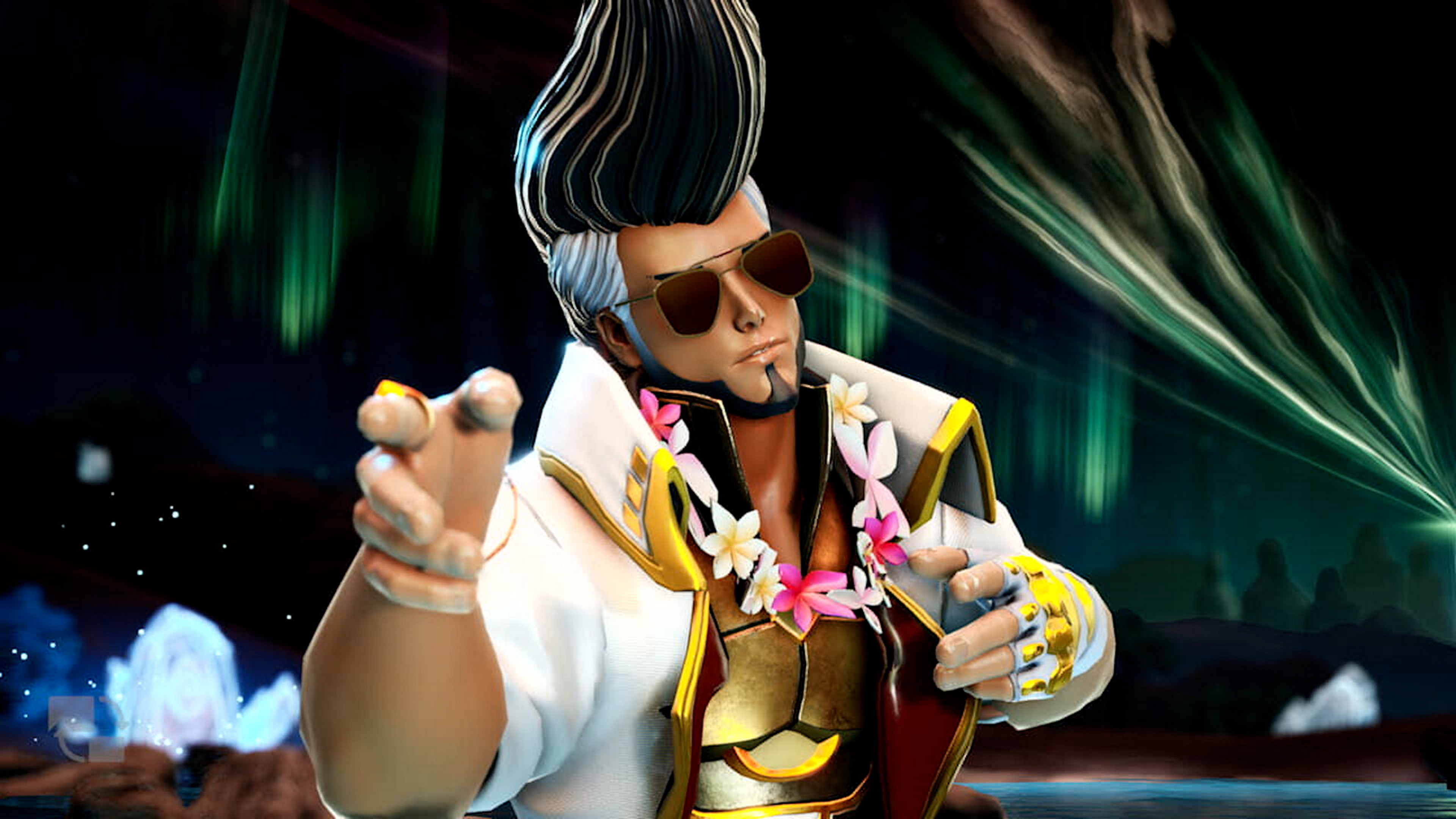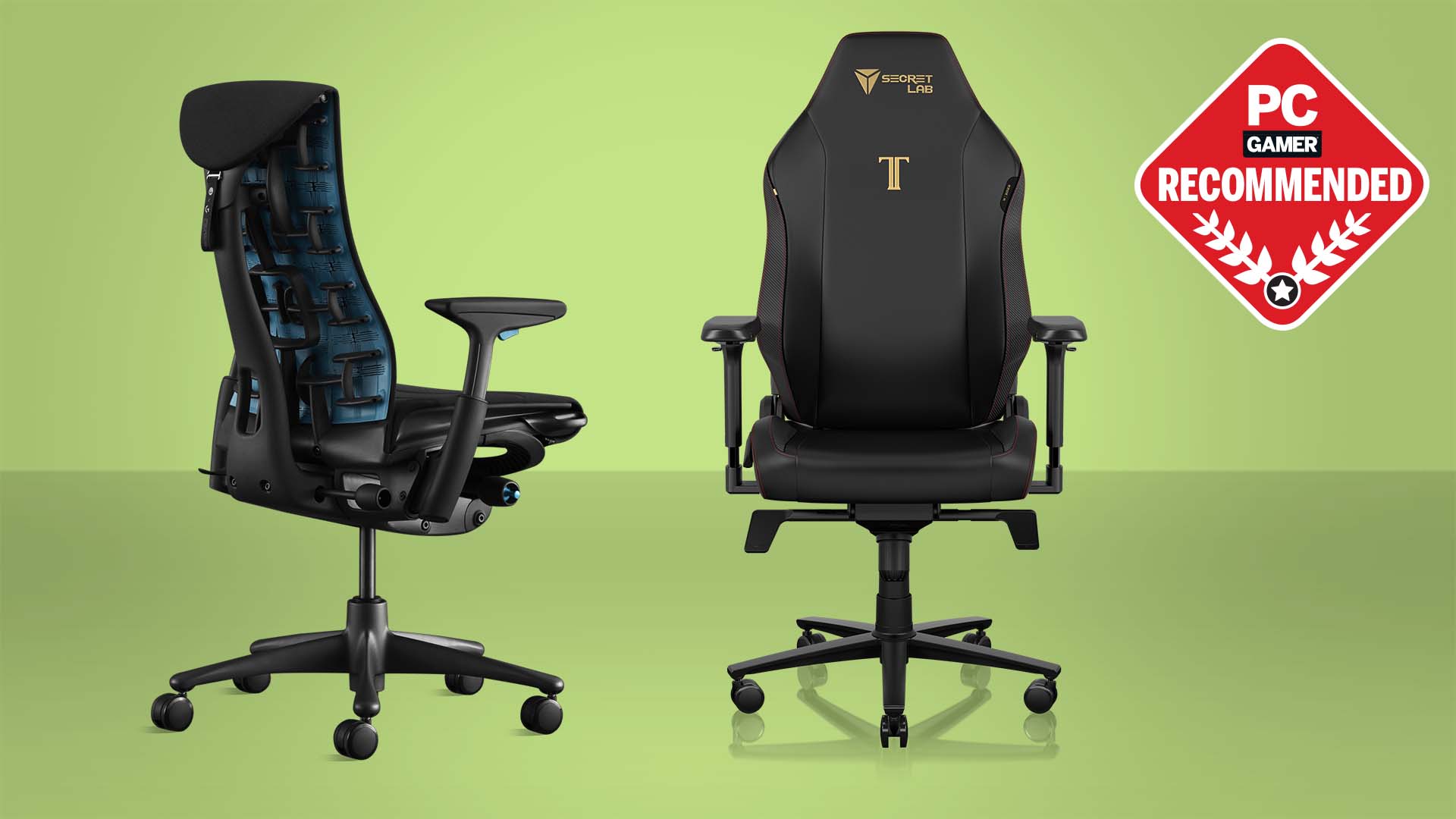Our Verdict
Watching your favourite game genres make out sounds exciting, but God of Rock doesn't quite nail it. It leaves a game that feels at odds with itself, sometimes fun to play but mostly frustrating or uninteresting.
PC Gamer's got your back
What is it? A rhythm game-slash-2D fighter with some rockin' guitar beats.
Release date April 18, 2023
Expect to pay $30 / £25
Developer Modus Studios
Publisher Modus Studios
Reviewed on Nvidia GeForce RTX3070, AMD Ryzen 7 2700X, 16GB RAM
Steam Deck Untested
Link Official site
For two genres that feel familiar on the surface, fighters and rhythm games are more like polar opposites. Sure, they both require precise inputs to a particular flow, but rhythm relies on mechanical perfection while fighting games need a deeper understanding of an often unpredictable opponent. In an ideal world, I think the two could harmonise quite well, but in God of Rock's case, the genres it's trying to blend are often at odds with each other.
It's a real shame, too. Fighters and rhythm are two of my favourite genres, so the idea of a game that marries the two was music to my ears. Instead of lengthy move lists and dedicated punch/kick buttons, God of Rock's battles take place with note charts scrolling across the bottom of the screen. Hitting a note at the same precision as my opponent causes both of us to block attacks, but getting more accurate time lets me break through their defenses and wallop them.
Matches don't end until one player falls, which means two people with perfect timing could be locked in an infinite battle with the note chart becoming increasingly difficult. This is where Modus Studios throws an extra sprinkle of fighting games in. Each character has three supers and an ultra move that can be thrown out with some more traditional fighter inputs like half and quarter circles. As well as hitting the opponent with a cluster of random notes, these abilities can do things like rapidly changing the note speed or letting me heal up if I'm taking a beating.
God of Rock's song library is perfectly serviceable. I wasn't super wowed by any of its songs and I think the game would have benefitted from a smaller song library or even a sprinkle of licensed songs. The problem is the fighting game portions severely break the flow of the rhythm part. I found it tough to find an opening to do my super inputs—I usually found myself purposely dropping the combo to try and get an attack out. Thankfully, you don't need precise memory of every ability input since you can usually mash it out—a small window above the notes will only show correct inputs so you have an idea of when you're going wrong. These moves are almost impossible to pull off when playing with a mouse and keyboard, however. While I was still dropping combos when using a controller, it was significantly easier using analog sticks compared to having to shift my hands to an entirely different location on my keyboard.
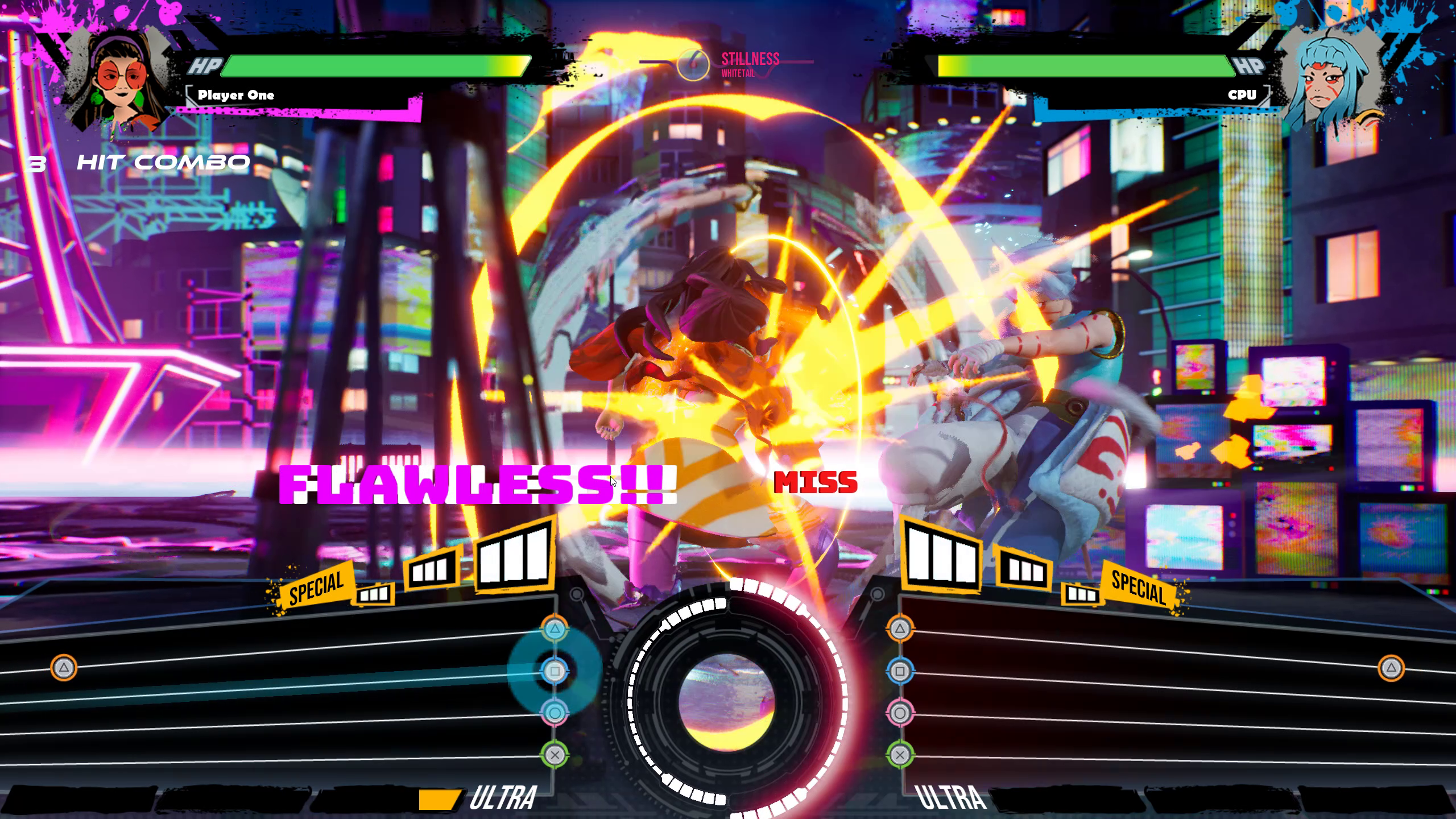
There are also reversals that can be executed, but reading and reacting to them properly further added to the visual chaos. A circle in the middle of the screen lights up a particular colour when my opponent is about to throw out a super move. In order to reverse their attack and save myself, I had to quickly respond with a super move of a higher level. Trying to take my eyes away from notes to keep an eye on the circle, read its colour, and then respond appropriately was nigh impossible.
Not only that, but some UI choices make reading notes in God of Rock an arduous task. There's a reason games with horizontal notes are often relegated to one or two input lanes—horizontal note charts are an absolute ballache to read. With four inputs to keep an eye on and poor rebind options, I found it difficult to read more dense note charts. Vertical lanes would improve the experience tenfold, especially when playing with a keyboard.
I have some other small gripes with the UI—the health bar is too far from the notes, making it tough to glance over and get a quick read on how my health—and my opponent's health— s looking. While the actual fighting happening in the background is punchy and a treat to get the odd glimpse of, it's often accompanied by bright white flashes. I got used to it eventually, but it made reading notes during the first hour of the game even more difficult.
Flash Dance Kick
God of Rock's modes are limited; there's an arcade mode with some lovely illustrated cutscenes for each character that has you fighting through the roster. Freeplay mode lets you play through specific songs either against a CPU or with another player offline. Finally, multiplayer mode has ranked and casual lobbies to face off against other players online.
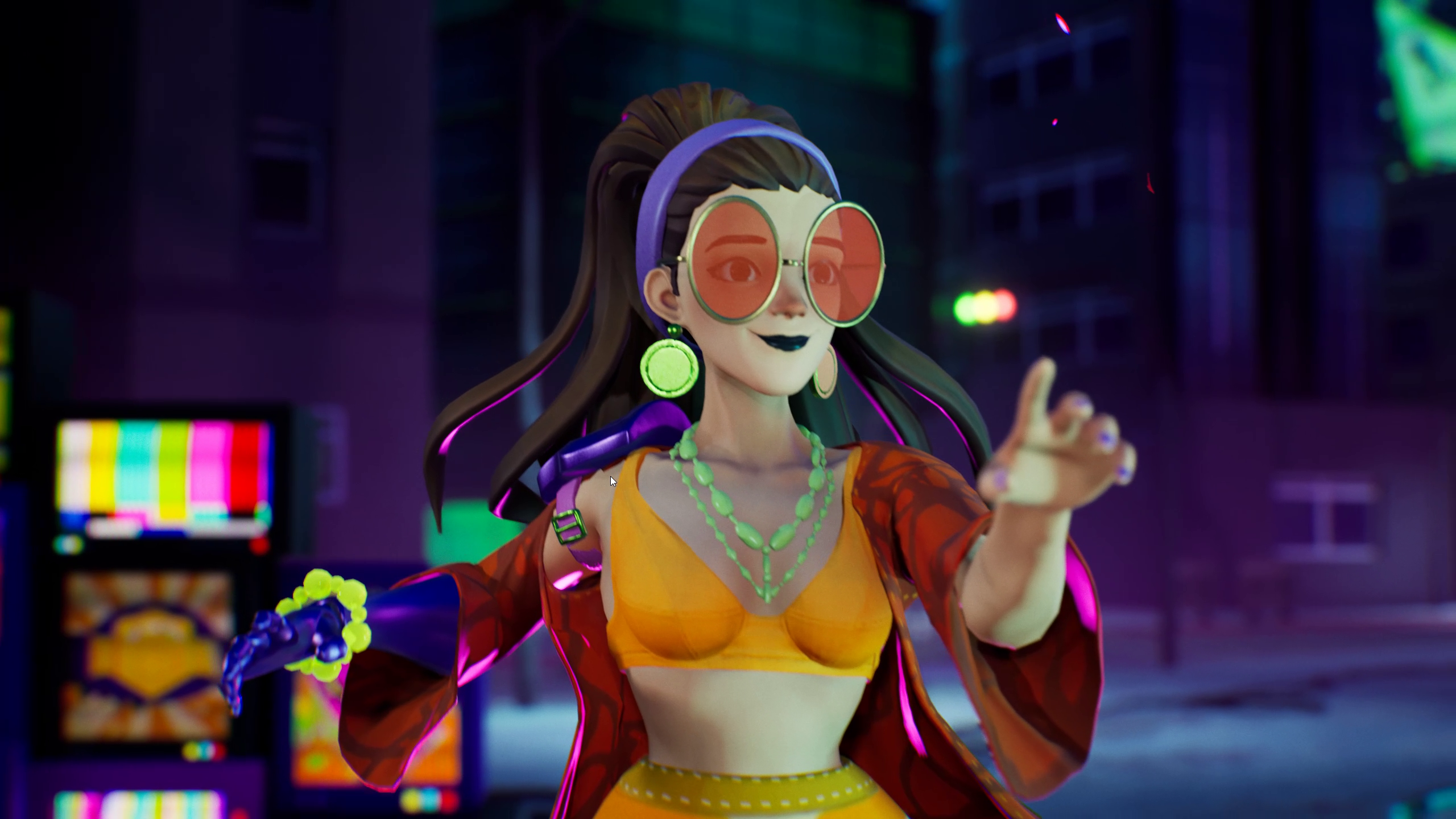
The thing I was most impressed with was how streamlined God of Rock's online multiplayer was. I jumped in for some games with a fellow rhythm and fighter enthusiast. Setting up a lobby took no time at all, and within less than a minute we were in a match together. Once our game was over, hopping into a rematch was instant. As someone all too used to dealing with lengthy rematch loading screens (looking at you Tekken 7), it was a huge blessing.
We could also jump straight into a rematch with a randomly selected song, removing the need for us to keep diving back into the song list. The only thing I didn't love was that control over manual song selection lies with the host only. On the bright side, my friend could see me scrolling through the list so we could pick together with a bit of communication.
Despite its struggles, I really did love God of Rock's charm. Its roster is a colourful mix of characters like comic artist Edith or carefree spirit Lyn. I enjoyed some of their unique interactions during arcade intros—though I wish these could be skipped in freeplay or multiplayer—and the game's stage designs were pretty, if not a tad out of place with the game's tone.
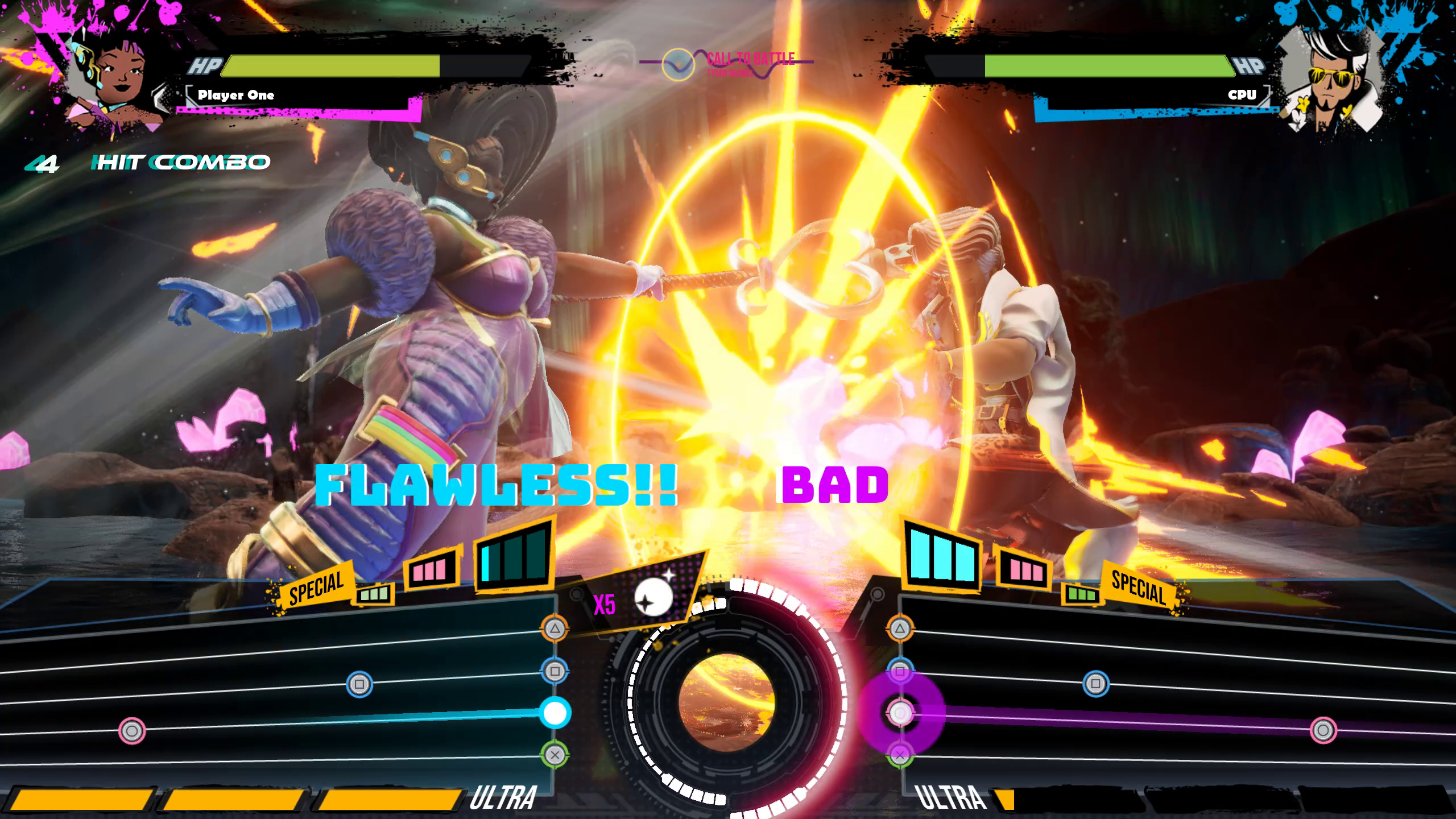
Unfortunately, I don't think God of Rock is going to hold the attention of diehard fans of either genre any time soon. I found myself struggling to want to play for more than an hour or two. Getting these two polar opposite genres to work well together was a tough task, and God of Rock doesn't quite get the two to mesh. It's very pretty to look at and it's clear Modus Games put a lot of love into it, and I look forward to seeing what the developer does with future updates. I do hope it considers making some UI adjustments and adding an option for vertical notes—it would make the experience far more enjoyable.
Watching your favourite game genres make out sounds exciting, but God of Rock doesn't quite nail it. It leaves a game that feels at odds with itself, sometimes fun to play but mostly frustrating or uninteresting.

Mollie spent her early childhood deeply invested in games like Killer Instinct, Toontown and Audition Online, which continue to form the pillars of her personality today. She joined PC Gamer in 2020 as a news writer and now lends her expertise to write a wealth of features, guides and reviews with a dash of chaos. She can often be found causing mischief in Final Fantasy 14, using those experiences to write neat things about her favourite MMO. When she's not staring at her bunny girl she can be found sweating out rhythm games, pretending to be good at fighting games or spending far too much money at her local arcade.
